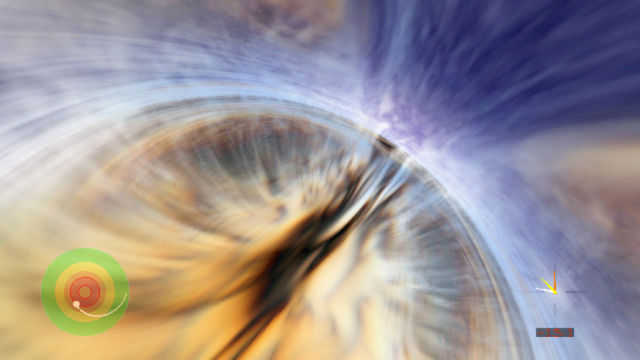Event horizon ringing damped by unstable space-time

Space-time gets very messy near the event horizon of a black hole, as this simulated view indicates. (credit: Andrew Hamilton; NSF )
Now that gravitational waves have been detected, theoreticians have been furiously speculating about what we might learn from our gravitational wave observatories. Now that we have a couple of observed black hole collisions under our belt, it is time to consider what we might study. There's some speculation that, depending on the sort of physics at play, the event horizon of a black hole might be studied through gravitational waves.
For this to work, the gravitational wave signal has to change depending on what type of black holes are merging. A recent paper in Physical Review Letters indicates that, unfortunately, reality will probably not cooperate.
No bells on a black holeWhen two black holes collide, gravitational waves are emitted as a result of a kind of relaxation process. So far, we have mostly been excited about the waves generated just before the merger, where the objects are spiralling into each other and emitting waves as they plunge through space at very high speed.
Read 16 remaining paragraphs | Comments